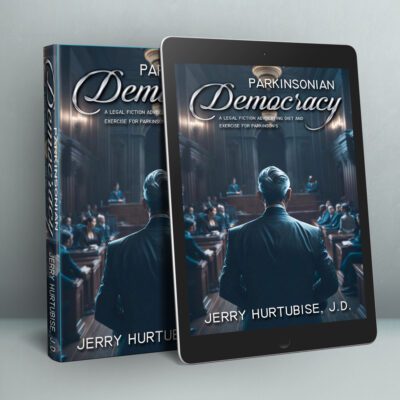You have an awesome story. Everyone you tell the concept to stares at you with wide eyes. “I would read the heck out of that,” they say. The other, more common reply: ‘I would so read that…if I could be bothered to read. I’m just not a reader, though.’ It’s a sentence many writers hear. With a shrug of their shoulders, they dismiss your next great piece of “Award-Winning Literature ™” because of their inability to digest a certain media format. Which is why some choose to start a podcast as an author to reach non-reading audiences.
Look, every writer has been there before. At times, a writer can feel lost and adrift, afloat in a sea of ignorance. You know you have the writing chops to impress these people. So how do you reach them? In what way can you make your writing pop from the page?
Welcome to the Age of Audio
Diversifying your platform can certainly help. We’re no longer in a purely paperback age where the printed word rules the roost. More and more books, magazines, and newspapers are making the jump to digital. Entertainment is now coming from streaming services. The old reliable boys in blue, Blockbuster, witnessed this digital revolution to their own disastrous demise.
And your audience? They’re multitasking, like doing dishes, commuting, and working out. Audio storytelling meets them where they are.
You can whine about it, or you can adapt. From ebooks, visual novels, plays, table readings, podcasts, or even the old amateur video à la Youtube, there are tons of options to get non-readers invested in your craft.
This series will be dedicated to a certain platform, the challenges of this platform, and ways to bridge from traditional writing to writing for that platform. If you’re stuck asking how to reach people who don’t pick up books, it might be time to start a podcast as an author.
Podcasting offers authors a flexible way to repurpose their content, connect with new fans, and promote their work in a more accessible, engaging way.
Why Authors Are Starting Podcasts
Readers are also listeners, and podcasts are a growing way to connect with new audiences who might not pick up your book but will absolutely listen to your voice. Here’s what makes podcasting such a powerful extension of your writing platform:
1. It’s Portable & Easy to Access
Today’s audiences can stream or download podcasts on just about any device. Whether someone’s stuck in traffic or folding laundry, they can still hear your story.
2. It’s Personal
There’s something intimate about a voice in your ear. Audio creates a connection that’s often deeper than text alone. Your voice builds trust and familiarity—two key things that keep people coming back.
3. It’s Creative & Flexible
Podcasts come in all formats:
- Short fiction narration
- Behind-the-scenes writing process
- Author interviews
- Full cast audio dramas
You can adapt your content to your personality and resources.
4. It’s Promotional (Without Being Pushy)
Want to tease a short story or a chapter of your novel? Read it aloud. Direct listeners to your newsletter. Share behind-the-scenes facts about your world. Podcasts are a natural gateway to your other formats.
According to Ad Results Media, podcast listeners are more engaged and more likely to trust hosts—making this one of the most effective marketing tools available in 2025.
Podcasts Take Work
Before you rush off to buy a mic, let’s talk about the commitment.
You’ll Need Equipment and Editing
Recording quality matters. To start a podcast as an author, you’ll need the basics: a good microphone, audio editing software, and possibly royalty-free music or sound effects. If you’re not tech-savvy, you might want to hire an editor or engineer to help smooth out your audio.
You’ll Need to Build an Audience
Even a brilliant podcast won’t get discovered without promotion. Cross-posting on social media, YouTube, Substack, and even guesting on other shows can help you build momentum. As Spines.com highlights, authors who combine platforms tend to see more growth and engagement.
You’ll Need Smart Distribution
There’s no single “podcast shelf.” Your show might appear on Spotify, Apple Podcasts, Stitcher, and other hosting platforms, all with different algorithms. Watch your analytics and adjust where you promote your episodes.
Is Podcasting Worth It?
According to Beverly Hills Publishing, authors who podcast tend to experience stronger brand recognition, higher book sales, and deeper fan engagement.
If you have the time, voice, and interest, it’s absolutely worth exploring.
But don’t stress if it’s not the perfect fit. The goal isn’t to jump on every new trend—it’s to build meaningful connections between your writing and your readers (or listeners).
Want a hybrid approach? Try what Superbrand Publishing calls an “Author Promocast”—a short, intentional podcast designed solely to promote your books.
What’s Next in the Series?
In Part 2, we’ll look at how authors can bring their stories to life visually, even without a fancy camera setup.
Related Reading:
- How to Write a Main Plot That Holds Your Story Together
- Subplots in Writing: The Secret to Richer Storytelling
- Thinking of using YouTube instead? Read Part 3: Independent Video







